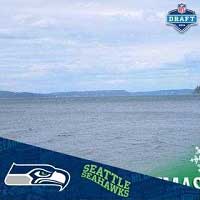(Total Views: 607)
Posted On: 01/04/2017 11:02:34 AM
Post# of 2913

Will A Reverse Stock Split Affect The Value Of My Shares?
I've seen numerous posts on I-Shlub by people asking what a reverse split will do to their shares and i don't recall anyone really giving a good answer. I pulled this from the SEC site:
Reverse Stock Splits
A reverse stock split reduces the number of shares and increases the share price proportionately. For example, if you own 10,000 shares of a company and it declares a one for ten reverse split, you will own a total of 1,000 shares after the split. A reverse stock split has no effect on the value of what shareholders own. Companies often split their stock when they believe the price of their stock is too low to attract investors to buy their stock. Some reverse stock splits cause small shareholders to be "cashed out" so that they no longer own the company’s shares.
A company’s board of directors may declare a reverse stock split without shareholder approval. Although the SEC has authority over a broad range of corporate activity, state corporate law and a company’s articles of incorporation and by-laws govern reverse stock splits.
If a company is required to file reports with the SEC, it may notify its shareholders of a reverse stock split on Forms 8-K, 10-Q and 10-K.
Hopefully, (and regardless of what they say on the OTHER board), this will put those of you who didn't know at ease.
https://www.sec.gov/answers/reversesplit.htm
Hey Pug,
Please sticky this
I've seen numerous posts on I-Shlub by people asking what a reverse split will do to their shares and i don't recall anyone really giving a good answer. I pulled this from the SEC site:
Reverse Stock Splits
A reverse stock split reduces the number of shares and increases the share price proportionately. For example, if you own 10,000 shares of a company and it declares a one for ten reverse split, you will own a total of 1,000 shares after the split. A reverse stock split has no effect on the value of what shareholders own. Companies often split their stock when they believe the price of their stock is too low to attract investors to buy their stock. Some reverse stock splits cause small shareholders to be "cashed out" so that they no longer own the company’s shares.
A company’s board of directors may declare a reverse stock split without shareholder approval. Although the SEC has authority over a broad range of corporate activity, state corporate law and a company’s articles of incorporation and by-laws govern reverse stock splits.
If a company is required to file reports with the SEC, it may notify its shareholders of a reverse stock split on Forms 8-K, 10-Q and 10-K.
Hopefully, (and regardless of what they say on the OTHER board), this will put those of you who didn't know at ease.
https://www.sec.gov/answers/reversesplit.htm
Hey Pug,
Please sticky this
I'm in it for the money, not the glory....
